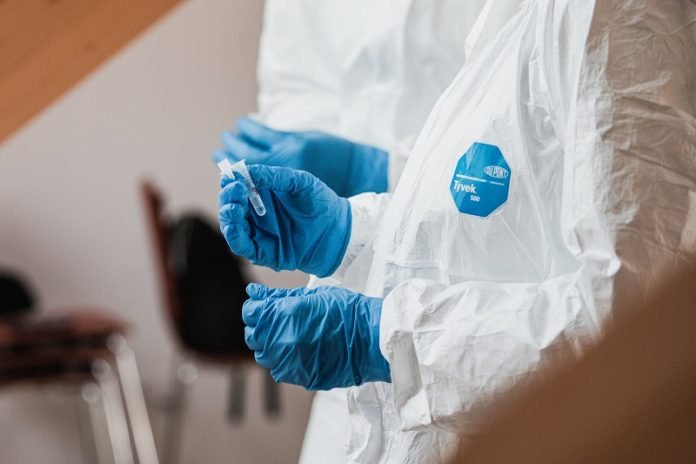
In two new studies, researchers found that omicron and other variants are evolving increased infectivity and antibody escape, and new vaccines, and antibody therapies are desperately needed.
The Covid-19 omicron variant was first announced by the World Health Organization on Nov. 26, 2021.
It spreads rapidly around the world and becomes the dominant variant in the U.S. and elsewhere.
Understanding how SARS-CoV-2 evolves is essential to predicting vaccine breakthroughs and designing mutation-proof vaccines and monoclonal antibody treatments.
In the study published in ACS Infectious Diseases, the researchers analyzed almost 1.5 million SARS-CoV-2 genome sequences taken from people with COVID-19.
They identified 683 unique mutations in the receptor binding domain (RBD), the region of the SARS-CoV-2 spike protein that attaches to the human ACE2 receptor on the surface of human cells.
Then, they used an AI model to predict how these mutations affect the binding strength of the RBD to ACE2 and to 130 antibody structures, including several monoclonal antibodies used as therapies.
The team found that mutations to strengthen infectivity are the driving force for viral evolution, whereas in highly vaccinated populations, mutations that allow the virus to escape vaccines become dominant.
The researchers also predicted that certain combinations of mutations have a high likelihood of massive spread.
In another study published in the Journal of Chemical Information and Modeling, researchers used their AI model to analyze how the variant’s unusually high number of mutations on the spike protein affect RBD binding to ACE2 and antibodies.
They found that omicron is over 10 times more infectious than the original coronavirus and 2.8 times more infectious than the delta variant.
In addition, omicron is 14 times more likely than delta to escape current vaccines, and it is predicted to compromise the efficacy of several monoclonal antibody therapies.
If you care about Covid, please read studies that COVID-19 vaccines need to be shored up with a plant-based diet, and inexpensive heart drug could help treat severe COVID-19.
For more information about health, please see recent studies about new way to prevent many COVID-19 variants, and results showing these two things are the key to suppressing COVID-19.
The two studies were conducted by Rui Wang, Jiahui Chen et al.



